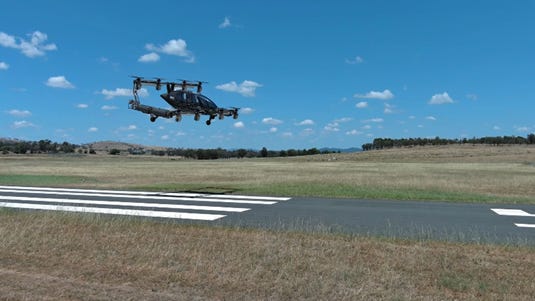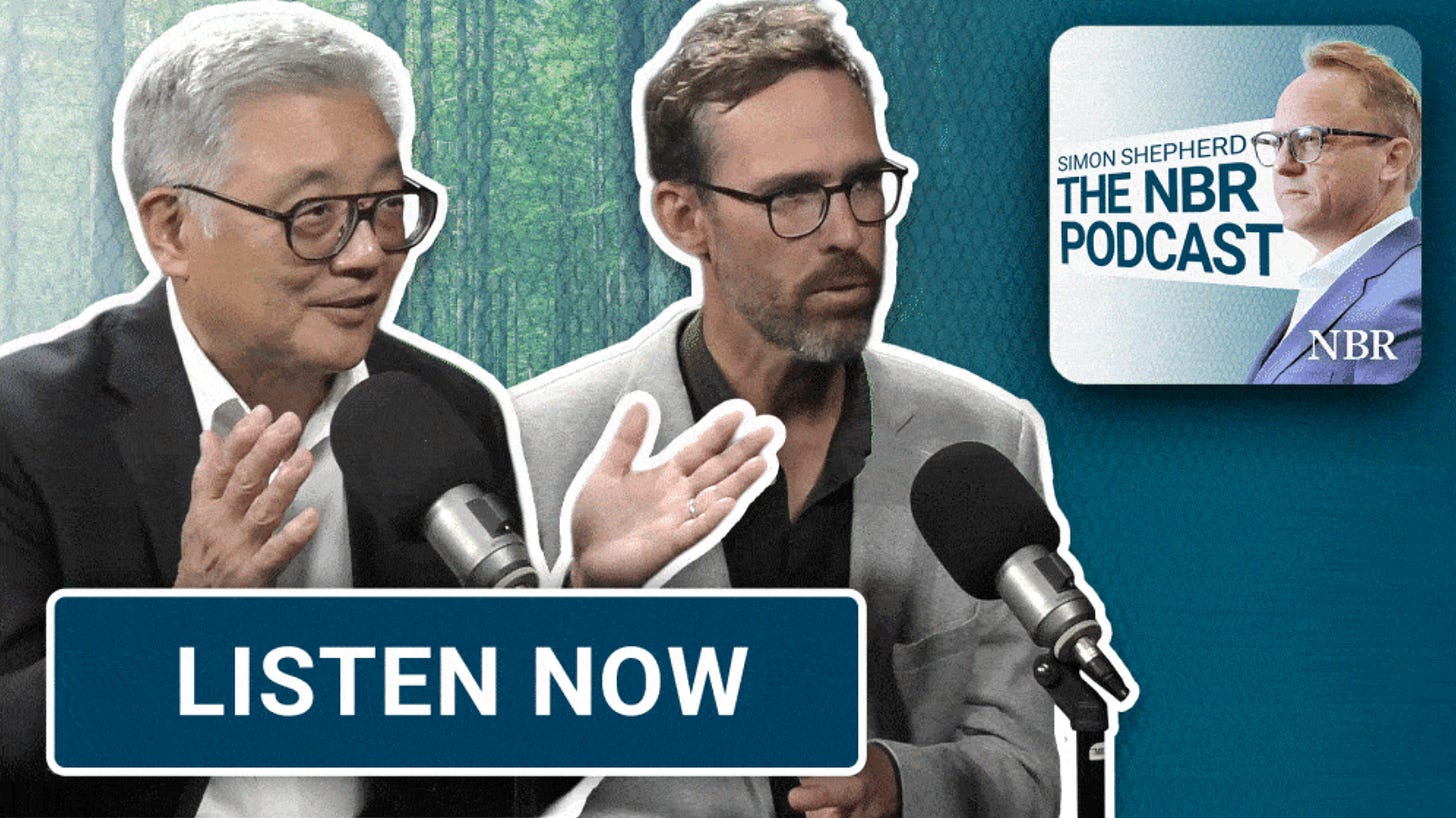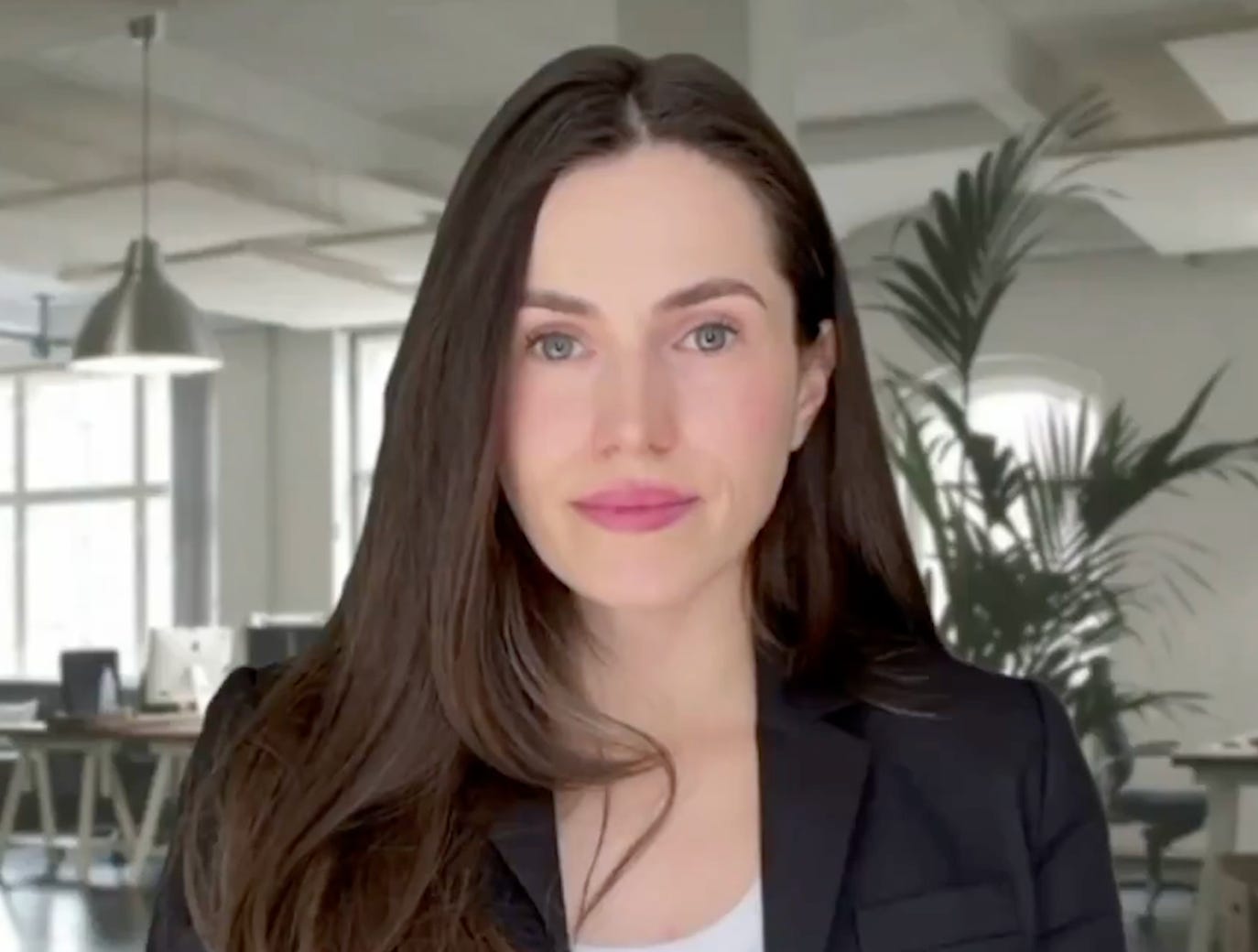Hydrogen planes are coming sooner than you think
Plus: $30m raise announced for "human replacement" AI sales agent
Kia ora Caffeinators,
Welcome in to Tuesday morning, hope you’re off to a good start! Daily Shots like these ones remind me why we do this. They say self praise is no praise, but I’m pretty stoked with the quality and diversity of news and startup stuff we have for you today:
Here’s what’s brewing in your Daily Shot:
Why hydrogen planes are coming sooner than you think
Pod Pick: Woke capitalism - where to now?
Event: Capital Capital: Wellington’s Summit for Founders and Investors
$30 million raise announced for “human-replacement” AI sales agent
Go well out there!
Nick and the CAFFEINE team
The race to hydrogen flight: Scaling zero-emission aviation: Fresh off a world-first demonstration at Christchurch Airport, where Fabrum successfully filled its composite liquid hydrogen tanks, the Christchurch-based company is proving hydrogen electric flight is no longer just theoretical.
I spoke with Mark Hoskins, Fabrum’s Chief Revenue Officer, to unpack what this milestone means, why liquid hydrogen is such a big deal for aviation, and why New Zealand is poised to lead the way.
Q: What makes hydrogen such a strong contender for decarbonising aviation?
“Hydrogen is a really good enabler of decarbonisation across several hard-to-abate sectors - heavy transport, mining, and aviation in particular.
“Liquid hydrogen is especially well suited to aviation because it’s lightweight and energy dense. Once you move past gaseous hydrogen into liquid form, you get a much lighter fuel system, which is critical when every kilogram matters. It’s all about trade-offs - minimising fuel and aircraft weight so you can maximise passengers or payload.
“Batteries make sense for very short flights, and sustainable aviation fuel will likely play a role in longer-haul flights. But for medium-range routes with 50-150 seat aircraft, liquid hydrogen hits the sweet spot. In New Zealand, that’s almost every domestic flight.
“We’re also a great testbed for the global industry - we’re leaning into hydrogen and our routes perfectly match the technology. Airlines know the infrastructure and regulatory environment here are already progressing toward readiness.”
Q: What are the main benefits of hydrogen over conventional aviation fuel?
“It starts with emissions. When you burn hydrogen, the only byproduct is water - that’s it. Compare that to hydrocarbons, which are great energy sources but come with a heavy environmental cost.
“Globally, aviation makes up around 2-3% of CO₂ emissions. In New Zealand, it’s closer to 9% because of our isolation. Hydrogen gives us a credible way to tackle that.
“The other big advantage comes from composite tank technology. With traditional gaseous storage, to carry 5kg of hydrogen, you need 95kg of equipment to hold it; only 5% of your weight is usable fuel. With Fabrum’s lightweight composite tanks, that efficiency ratio can hit 50%. That’s a game-changer.”
Q: What were the biggest challenges in building Fabrum’s composite hydrogen tank?
“It’s been a long journey - Fabrum started in composites more than two decades ago, building high-performance components for superconducting motors, and aviation and superyacht industries.
“The hardest part is managing the extreme temperature delta from ambient down to liquid hydrogen’s -250°C. You need to fill quickly, but not so fast that you thermally shock the tank. At the same time, you want to minimise boil-off, where some hydrogen evaporates during refuelling.
“Our solution is a triple-skin composite tank - a lightweight inner vessel, a vapour layer, a vacuum layer, and an outer shell. Our world first test last month reduced boil-off losses from around 100% to less than 5%, delivering faster refuelling without sacrificing the durability that aviation demands.”
Q: What’s next for Fabrum and hydrogen aviation?
“We’re engaging with AMSL Aero and Stralis Aircraft, who both plan to fly their hydrogen aircraft within the next 6-12 months. There’s a year-long programme in New Zealand scheduled to follow those first flights.
“The big challenge is permanent access to liquid hydrogen fuel. You can’t scale an aviation ecosystem without it. That’s why we’re working with Christchurch Airport, the Hydrogen Council, and government partners to establish a permanent liquefying facility at the airport.
“Hydrogen flight is closer than most people think. Some of the smaller OEMs are moving fast - AMSL could be flying commercially by 2030. And New Zealand has the innovation culture, regulatory flexibility, and renewable advantage to help make that happen.
“This is going to be a multi-billion-dollar global industry - it has to be. In New Zealand, we’ve got every opportunity to claim a meaningful part of it.”
Pod Pick: NBR podcast: Woke capitalism - where to now? There’s a small sense of irony, or perhaps it’s perfectly fitting, to mention this podcast on the back of the opening piece above. Because, for all their noble intentions, sustainability-oriented innovations and startups have very real, very challenging, commercial realities.
Those realities are a key reason behind many NZ businesses walking back from emissions goals, or not even getting to the start line. Air New Zealand and NZ Post are among those to have reset prior commitments, while others have reportedly watched timelines come and go without delivering on stated intentions, and more have not yet set targets despite making promises.
It seems climate targets are being exposed for being somewhat toothless - yes, we want to see businesses reduce emissions (and they usually say they do too), but relying on their sense of doing the ‘right thing’ and allowing them to transition to sustainable methods in their own time inevitably means it happens slowly.
In another fantastic episode of the NBR podcast, (I must admit I’m only a few minutes in for the sake of writing this blurb, but I expect the next 18-odd minutes will continue to be great) Simon Shepherd examines where the momentum is at in the sustainability movement - whether it’s a blip in the road or signs of a bigger issue. Highly recommended listening for anyone in the sustainability space - catch it here.
Event: Capital Capital: Wellington’s Summit for Founders and Investors: I’m not one for cannibalising our own I Wish I Knew event with James Sampson this Thursday in Auckland (link here 😉) but if you’re in Wellington that day, you’re hardly going to make it anyway. And there’s so much to love about this one.
I especially love how Capital Capital is being organised, which is all around enabling connections for startups, scaleups, investors and supporters. There’s a seriously impressive list of presenters, but there’s also facilitated 1:1 meetings, casual coffee sessions, catered lunches and networking drinks.
If I start naming speakers I’ll never stop; so let’s just say there are some of NZ’s leading founders, VCs and startup supporters, including many people who’ll be familiar to the Caffeine audience. Some sessions have as many as six individual speakers - there’s so much value with all these different perspectives and experiences. Find out more and register here.
1mind announces $30 million Series A for “human-replacement” AI sales agent: Among the things that stand out about this announcement is the open use of “human-replacement”. It seems like we’re stepping out of this wilfully ignorant world of secretly knowing AI will replace people but kinda pretending it won’t, into acknowledging the reality, and, in this case, marketing it as a benefit.
1mind pitches Mindy, its AI sales agent, as a “quota-crushing, superhuman closer”, and “the smartest person in the room”. It’s developed specifically to close inbound sales - it can do everything from field queries through to doing the deal. I can’t quite bring myself to refer to it using the female pronoun that founder Amanda Kahlow does (the photo above isn’t her, it’s Mindy), but you can’t get in trouble for misgendering an LLM…yet…can you?
That’s it for today, thanks for reading. Want to get in touch with a news tip, bit of feedback or just to chat? Email hello@caffeinedaily.co








